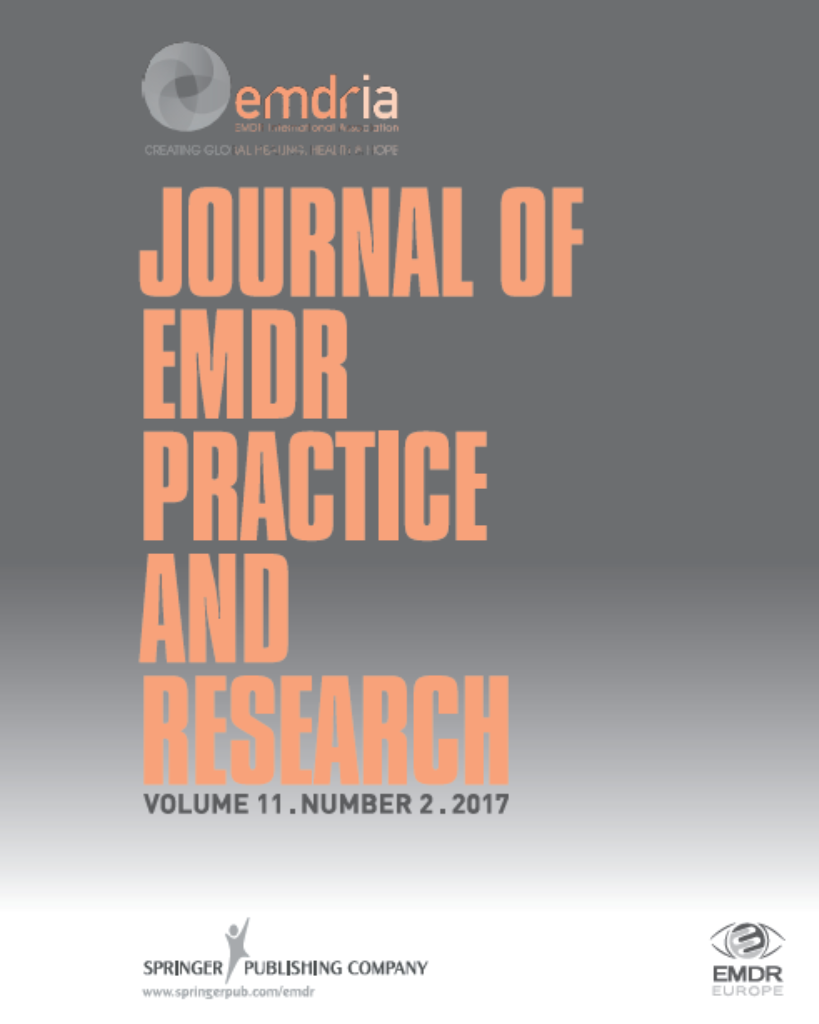Prise en charge du traumatisme psychique par la thérapie EMDR et mécanismes cérébraux impliqués
[The management of psychological trauma through EMDR therapy and the cerebral mechanisms involved]
L’objectif de nos travaux était d’explorer le mécanisme d’action de la thérapie EMDR à travers différents paradigmes en EEG, TEP-scanner et IRMf, en comparant l’activité cérébrale avant et après traitement ou pendant les stimulations bilatérales alternées.
Article Abstract
“Le trouble de stress post-traumatique (TSPT) est une pathologie fréquente, touchant près de 8 % de la population générale. Un des traitements les plus efficaces dans cette pathologie est une psychothérapie nommée EMDR pour eye movement desensitization and reprocessing. Bien que cette thérapie n’en soit plus à faire la preuve de son efficacité, les mécanismes d’action de celle-ci demeurent encore aujourd’hui inconnus. L’objectif de nos travaux était d’explorer le mécanisme d’action de la thérapie EMDR à travers différents paradigmes en EEG, TEP-scanner et IRMf, en comparant l’activité cérébrale avant et après traitement ou pendant les stimulations bilatérales alternées. Nous avons pu démontrer que la thérapie EMDR modifiait l’activité d’un réseau cérébral impliqué dans le traitement émotionnel et la mémoire et d’une structure en particulier, le précuneus. Les stimulations bilatérales alternées qui sous-tendent l’action de l’EMDR activent elles aussi une partie de ce réseau expliquant l’impact de l’EMDR sur la mémoire traumatique. L’action de l’EMDR semble également nécessiter des modifications de synchronisation/désynchronisation de l’activité des structures du réseau émotionnel pour être efficace. L’activation de ce réseau pourrait reposer sur le phénomène de résonance stochastique permettant l’extension et la modification du réseau de mémoire traumatique par synchronisation neuronale.”
[“Post-traumatic stress disorder (PTSD) is a common disorder, affecting nearly 8% of the general population. This psychiatric pathology is characterized at the symptomatic level by repetition, avoidance, neurovegetative hyperactivation, and negative alteration of cognitions and mood. One of the most effective treatments for this pathology is EMDR (eye movement desensitization and reprocessing) therapy. Although this therapy is no longer required to prove its effectiveness, its mechanisms remain unknown to this day. The objective of our work was to explore the mechanisms of EMDR therapy through different paradigms in EEGs, PET scans, and fMRIs, by comparing brain activity before and after treatment or during alternating bilateral stimuli. We were able to demonstrate that EMDR therapy altered the brain activity of a brain network involved in emotional processing and memory and one particular structure, the precuneus. The alternating bilateral stimuli that underlie EMDR action also activate part of this network, explaining the impact of EMDR on traumatic memory. EMDR action also seems to require synchronization/desynchronization modifications of the activity of the structures of the emotional network to be effective. EMDR therapy has often been related to REM in sleep. We found that the duration of REM sleep before treatment can predict the number of sessions required to achieve remission. Through the action of alternating bilateral stimuli, EMDR seems to activate a network of structures capable of modifying traumatic memory. The activation of this network could be based on the stochastic resonance phenomenon allowing the extension and modification of the traumatic memory network through neural synchronization.”]
—Description from publisher
Article Access
Open Access
Khalfa, S. (2019). Prise en charge du traumatisme psychique par la thérapie EMDR et mécanismes cérébraux impliqués. Revue de neuropsychologie, 2(4). doi:10.1684/nrp.2019.0522. Access link: https://www.jle.com/fr/revues/nrp/e-docs/prise_en_charge_du_traumatisme_psychique_par_la_therapie_emdr_et_mecanismes_cerebraux_impliques_315834/article.phtml?tab=citer
Date
October 1, 2019
Creator(s)
Stéphanie Khalfa
Topics
PTSD
Practice & Methods
Mechanisms of Action, Neurobiology
Extent
6 pages
Publisher
JLE
Rights
Open access, creative commons. Licence Cette œuvre est mise à disposition selon les termes de la Licence Creative Commons Attribution - Pas d'Utilisation Commerciale - Pas de Modification 4.0 International.
APA Citation
Khalfa, S. (2019). Prise en charge du traumatisme psychique par la thérapie EMDR et mécanismes cérébraux impliqués. Revue de neuropsychologie, 2(4). doi:10.1684/nrp.2019.0522. Access link: https://www.jle.com/fr/revues/nrp/e-docs/prise_en_charge_du_traumatisme_psychique_par_la_therapie_emdr_et_mecanismes_cerebraux_impliques_315834/article.phtml?tab=citer
Audience
EMDR Therapists, Other Mental Health Professionals
Language
French
Content Type
Article, Peer-Reviewed
Access Type
External Resource, Open Access





